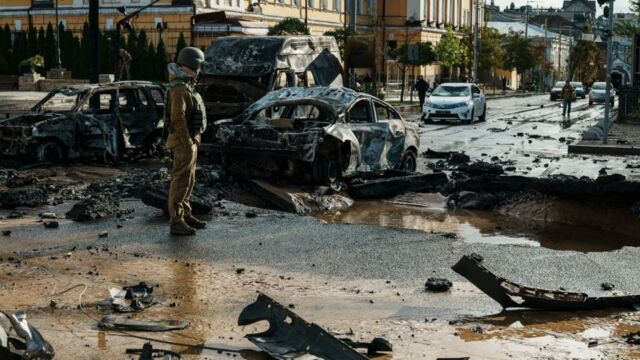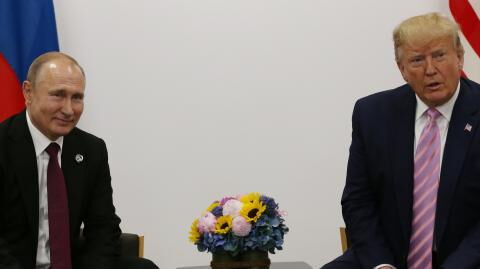Recently, Russian officials accused Ukraine of developing a ‘dirty bomb’ and took these allegations also to the UN Security Council.
Discover our latest podcast
Ukraine remains anti-nuclear
After the collapse of the Soviet Union in 1991, Ukraine inherited a large stockpile of nuclear warheads with over one thousand bombs.
Ukraine was at the time the 3rd country in the world in terms of its nuclear arsenal, however, not for too long, as its intent was to get rid of the bombs.
The Budapest Memorandum, a tripartite agreement, was born between Russia, the US, and the UK to guarantee Ukraine’s security if the latter accepts to abandon all of its nuclear stock, Newsweek reports.
To this day Ukraine has remained an anti-nuclear country and recently officials have dismissed Russia’s claims by saying the aggressor neighbour wants further escalation.
Western officials have said this is an attempt on the side of Russia for a ‘false flag’ operation, which means Russia would perform an attack on its soil and then blame Ukraine.
What are ‘dirty bombs’?
‘Dirty bombs’ are conventional bombs which contain traces of another substance, The Guardian reports.

In the case of nuclear ‘dirty bombs’, the other substance is radioactive powder or pellets. But there is no fission as it is when a nuke explodes.
As defined by the Office of Nuclear Energy, fission occurs when:
When a neutron slams into a larger atom, forcing it to excite and split into two smaller atoms.
When each atom splits, a tremendous amount of energy is released.
They have limited utility in conventional warfare as they render the blast area contaminated.
To counter Russia’s claims, Ukrainian officials have invited the UN nuclear watchdog to visit the places where allegedly they are developing a ‘dirty bomb’, Newsweek reports.
On Tuesday, US President Biden responded to Russia’s claim by issuing a warning against using a ‘dirty bomb’, Reuters reports.
'I'm not guaranteeing you that it's a false flag operation yet, we don't know. But it would be a serious mistake'.
Sources used:
-Newsweek: ‘Russia Says It Fears Ukraine Will Use 'Nuclear Bomb'—It Doesn't Have One’
-The Guardian: ‘What are dirty bombs and why is Russia talking about them?’
-Reuters: ‘Russia notifies U.S. it will carry out expected nuclear drills’
- Office of Nuclear Energy: 'Fission and Fusion: What is the Difference?'















